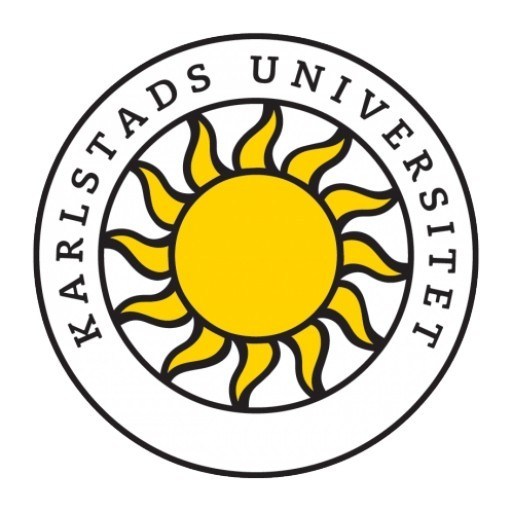Photos of university / #universitatvalencia
The Master's Degree in Cultural Heritage: Identification, Analysis and Management offered by the University of Valencia is a comprehensive program designed to equip students with advanced knowledge and practical skills necessary to preserve, analyze, and manage cultural heritage in diverse contexts. This program emphasizes the multidisciplinary nature of cultural heritage, integrating insights from archaeology, history, art history, conservation sciences, management, and digital technologies. Students will explore the theoretical foundations of cultural heritage, its significance in societal development, and the challenges associated with its safeguarding in the modern world. The curriculum includes both theoretical coursework and hands-on training, allowing students to acquire competencies in heritage identification, documentation, restoration techniques, and interpretation. Special attention is given to the use of innovative digital tools such as GIS, 3D modeling, and digital cataloging to enhance heritage analysis and accessibility. Through various practical projects, site visits, and collaboration with cultural institutions, students gain real-world experience in heritage management and preservation strategies. The program also prepares graduates for careers in cultural management, conservation, curation, research, and policy-making. Graduates will be capable of conducting detailed heritage assessments, developing conservation plans, and implementing integrated management strategies that balance preservation with sustainable use. The University of Valencia’s strong research environment and ties with local and international cultural organizations provide students with valuable networking opportunities. Overall, this master's program aims to foster a new generation of professionals committed to safeguarding cultural heritage for future generations, combining academic excellence with practical application to meet the current and future needs of cultural preservation and management worldwide.
The Master’s Degree in Cultural Heritage: Identification, Analysis and Management offered by the University of Valencia provides students with comprehensive training to understand, evaluate, and preserve cultural heritage in its diverse forms. This program aims to develop professionals capable of managing cultural assets effectively while promoting sustainable practices that respect historical significance and community values. Throughout the course, students are introduced to the fundamental principles of heritage identification, which includes understanding various types of cultural assets such as monuments, archaeological sites, and intangible heritage. Emphasis is placed on the methods used for assessing the importance and condition of these assets, utilizing innovative techniques and multidisciplinary approaches.
The curriculum integrates theoretical knowledge with practical skills, enabling students to carry out detailed analyses of heritage elements. This involves understanding architectural styles, historical contexts, and the sociocultural significance of different heritage items. Students are trained in the use of modern technological tools, such as Geographic Information Systems (GIS), remote sensing, and digital documentation, which are essential for accurate identification and management. The course also explores the legal and ethical aspects related to heritage preservation, including international conventions, national regulations, and community involvement.
A key component of the program is heritage management, where students learn strategies for conservation, restoration, and interpretation. They examine case studies and participate in fieldwork activities that provide real-world experience in planning and executing conservation projects. The program emphasizes the importance of sustainable management practices that balance preservation with accessibility and tourism. Students gain skills in project planning, interdisciplinary collaboration, and communication with stakeholders—including local communities, authorities, and private organizations.
Additionally, the program explores the growing role of cultural heritage in fostering social cohesion, identity, and economic development. Graduates will be equipped to work in various sectors such as museums, cultural institutions, governmental agencies, and private conservation firms. By the end of the course, students will have developed a critical understanding of heritage dynamics and the ability to implement effective management plans that ensure the longevity and appreciation of cultural assets for future generations. The University of Valencia’s program in Cultural Heritage: Identification, Analysis and Management prepares students to become leaders in the field of heritage preservation, with a strong foundation in both theoretical concepts and practical applications.
The Master’s Degree in Cultural Heritage: Identification, Analysis and Management at the University of Valencia requires applicants to possess a recognized university degree, preferably in fields related to history, archaeology, art history, anthropology, or other humanities and social sciences. Prospective students must demonstrate sufficient academic background and motivation for advanced study in cultural heritage. Application evaluations consider academic records, curriculum vitae, motivation letters, and, when applicable, interview results. To ensure a comprehensive understanding of the programme demands, applicants should have foundational knowledge in heritage preservation principles, research methodologies, and cultural analysis. Language proficiency in English or Spanish may be required, depending on the specific admission criteria established by the university. The programme emphasizes interdisciplinary approaches, combining theoretical knowledge with practical skills, which include heritage documentation, conservation techniques, policy analysis, and participatory management. Students are expected to engage in independent research, participation in fieldwork, and collaborative projects with museums, cultural institutions, or government agencies. Courses include modules in heritage legislation, cultural policies, archaeological techniques, digital documentation, and heritage tourism management. The program also fosters critical thinking through case studies, seminars, and research projects, preparing graduates for careers in cultural management, conservation, academia, or consultancy. Upon successful completion, students receive a Master’s degree that qualifies them for roles in cultural heritage protection, policy development and implementation, and research. The programme duration is typically one or two academic years, with some variations based on the chosen study plan or whether students undertake a thesis or internship. The university provides resources such as specialized laboratories, libraries with extensive collections, and access to digital tools for heritage analysis. International students are welcomed and are provided with support services to facilitate integration into academic life. The cultural heritage program is aligned with European standards and includes opportunities for exchange programs, internships, and participation in international conferences, fostering a global perspective on heritage issues.
The Master’s Degree in Cultural Heritage: Identification, Analysis, and Management at the University of Valencia offers diverse financing options to support students throughout their studies. The program aims to facilitate access to higher education by providing multiple funding opportunities, including public and private scholarships, grants, and financial aid programs. Students can apply for scholarships awarded by the Spanish government, regional authorities, and the university itself, designed to support students based on academic merit, financial need, or specific criteria such as region of origin or professional background. Additionally, the university collaborates with various cultural institutions and organizations that may provide sponsorships or internships with financial incentives, helping students offset their expenses.
Furthermore, students are encouraged to explore external scholarship opportunities offered by international bodies, foundations, and cultural organizations associated with heritage preservation. The university's financial services department offers guidance and counseling on available funding sources, application procedures, and deadlines, ensuring students are well-informed about their options. Tuition fees for the program are competitive within the region and are structured to accommodate students from diverse economic backgrounds. Payment plans may be available to distribute costs over the academic year, easing financial burden.
International students and those from low-income backgrounds are prioritized for specific grants and support programs. The university also emphasizes promoting access for students with disabilities by providing additional financial aid and support services. In some cases, students can participate in teaching assistantships or research projects that include stipends, offering both financial support and valuable academic experience. Overall, the university's commitment to accessible education is reflected in its robust financing support system, aiming to reduce economic barriers and enable students to fully engage with their studies in cultural heritage identification, analysis, and management.
The master's program in Cultural Heritage: Identification, Analysis, and Management at the University of Valencia is designed to provide students with comprehensive knowledge and practical skills necessary to preserve, analyze, and manage cultural heritage resources. This interdisciplinary program combines aspects of history, archaeology, conservation, museology, and heritage management to prepare graduates for careers in the preservation of cultural assets at national and international levels. Students learn to identify and classify different types of cultural heritage, including archaeological sites, monuments, archives, and intangible cultural assets. The curriculum emphasizes both theoretical foundations and hands-on experience, with opportunities for fieldwork, laboratory analysis, and project development.
Throughout the program, students explore various methodologies for analyzing cultural heritage, including technical inspection, documentation techniques, and digital tools such as GIS and 3D modeling. Special attention is given to legal and ethical issues surrounding heritage conservation, as well as policies and sustainable management practices. The program also addresses current challenges such as urban development pressures, environmental threats, and the impacts of tourism. Graduates are equipped to work in museums, cultural institutions, governmental agencies, and conservation organizations, where they can contribute to the safeguarding and promotion of cultural heritage. The program benefits from the university’s strong connections with professional networks and provides students with internships and collaborative projects to enhance their employability. Overall, this master's degree aims to develop professionals capable of making informed decisions in the sensitive and responsible management of cultural heritage for future generations.









